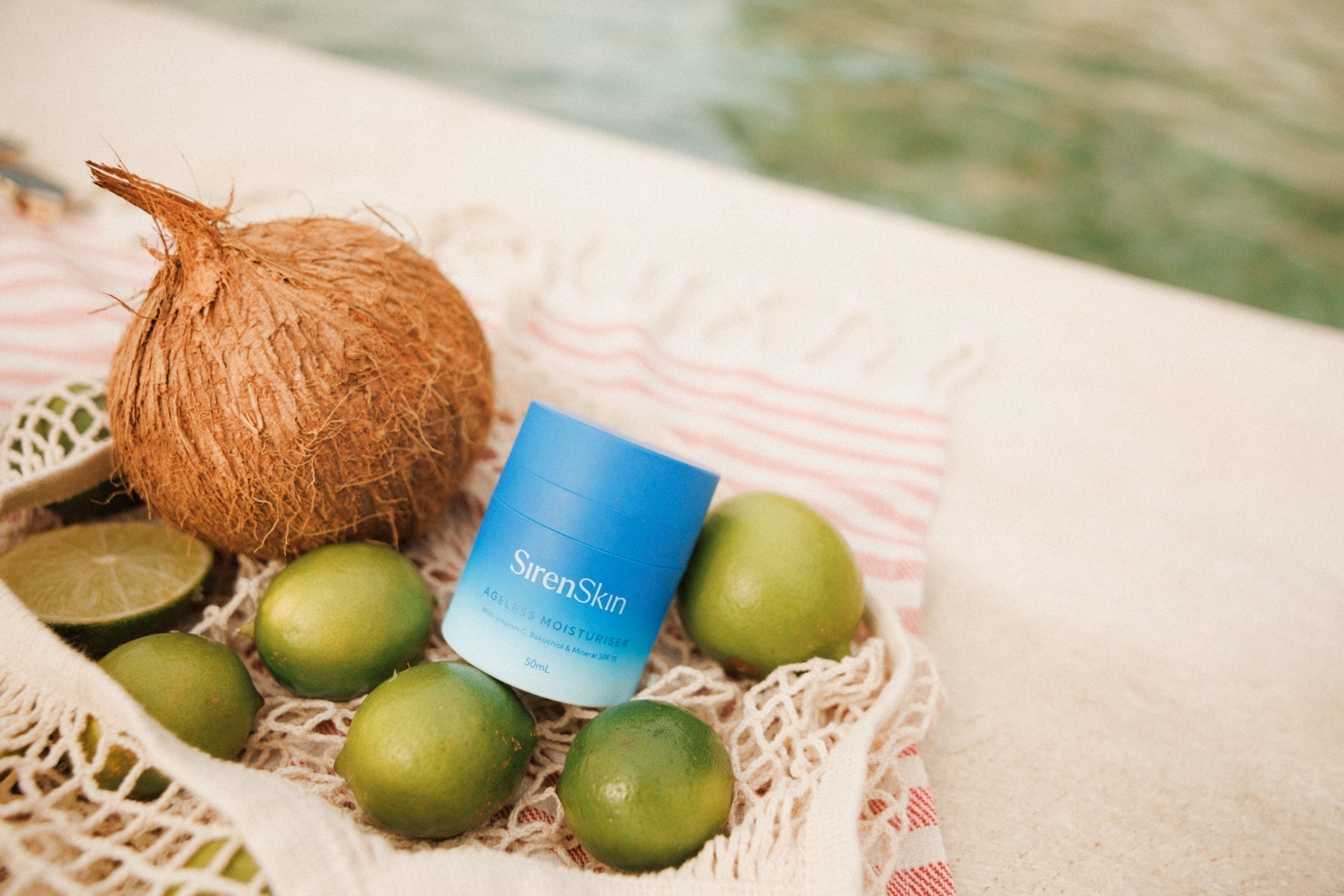Sensitive skin: 5 Things your skin teaches you

Understanding the science behind the struggle, so you can finally get results that last.
If you’ve ever described your skin as “reactive,” “easily irritated,” or just plain unpredictable—welcome. You’re not alone. Sensitive skin affects up to 70% of women, and hormonal shifts during pregnancy or postpartum can make it even more unpredictable.
Whether you’ve struggled with redness, dryness, flare-ups, or a sting from products that promise to be “gentle,” here are five things sensitive skin teaches you—grounded in science, and designed to help you make better skincare choices.
1. Your skin barrier is everything
Sensitive skin often comes down to one core issue: a compromised skin barrier. The skin barrier (your outermost layer) protects against moisture loss and keeps irritants out. During pregnancy, hormone fluctuations—especially increased estrogen—can weaken this barrier, leading to dryness, redness, and inflammation.
Look for ingredients like macadamia oil, rich in palmitoleic acid, or squalane, which mimic skin’s natural lipids and help restore barrier function.
2. Hydration is not just about drinking water
Dehydrated skin isn't always dry, you may notice it can be oily and dehydrated at the same time. Sensitive skin often lacks proper water retention due to barrier damage. That’s where humectants like snow mushroom extract (which holds 500x its weight in water) and pentylene glycol come in—they draw moisture into the skin and keep it there.
This is especially important for mums-to-be, as internal hydration demands skyrocket during pregnancy.
3. Fewer ingredients = Lower risk of irritation
Every ingredient is a variable and the more your routine includes, the more risk you introduce. Sensitive skin benefits from streamlined routines with multitasking products that do more with less.
For example, bakuchiol offers collagen-boosting benefits similar to retinol, but without the irritation—ideal for pregnancy-safe skincare. Combined with antioxidant-rich Kakadu Plum, these active botanicals deliver results while respecting your skin’s limits.
4. Pregnancy changes everything—Including skin pH
Hormonal shifts during pregnancy can alter the skin’s pH, making it more prone to sensitivity, acne, and pigmentation. Melasma (also known as “pregnancy mask”) is common, especially in women with medium to darker skin tones.
Supporting your skin with a natural, stabilised form of Vitamin C derivatives like ascorbyl glucoside can help brighten and even skin tone without triggering sensitivity. Always choose formulations that are pH-balanced and free from known irritants like synthetic fragrance or essential oils with high allergen potential.
5. “Natural” doesn’t always mean it’s good for sensitive skin
This one matters most: not all natural ingredients are safe for sensitive skin. In fact, some—like citrus oils or unbuffered acids can trigger inflammation or allergic reactions. What matters is how the formula is built: safety-tested, evidence-based, and tailored to your skin’s unique needs.
At Siren, our approach combines naturally derived, pregnancy-safe ingredients backed by data and dermatological science. Every formulation is created with sensitive and hormonal skin in mind, because natural should never mean “just trust us.”
Sensitive skin isn’t a flaw—it’s a signal.
And when you listen to it, you make better skincare choices. If you’re ready to calm inflammation, lock in hydration, and support your skin through every hormonal season, Siren’s here to simplify the journey.
If you haven't done so already, you can now join the waitlist for our official launch! We have some exciting surprises for founding members, so make sure you join the waitlist today, we can't wait to see you there #SIRENSKINCLUB



